The Neturei Karta are Judaism’s most extreme sect, whose warped theology has them rubbing shoulders with the worst enemies of the Jewish people. They advocate for Israel’s “extinction,” attend Holocaust denial conferences and support terrorist groups.
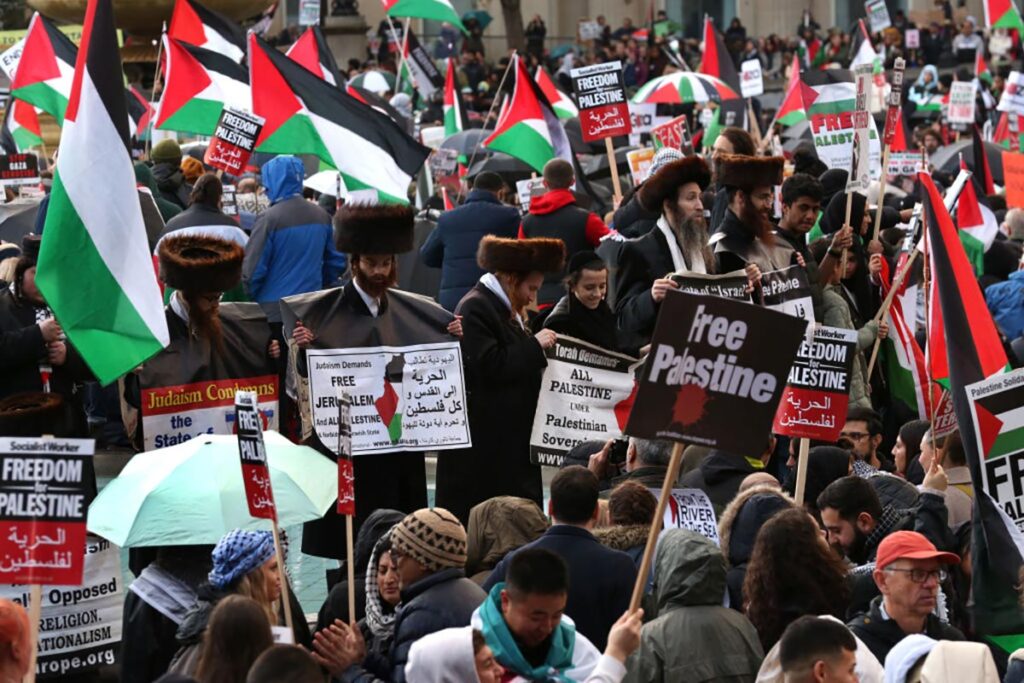
But why do the Neturei Karta oppose their own self-determination, jeopardize their own safety, and ally with antisemites against their own people?
Disagreement among Jews isn’t new. As the saying goes: two Jews, three opinions. Still, most Jews agree that the Neturei Karta’s opinions are beyond the pale, with even the most devoutly anti-Zionist Jews rejecting their subversive tactics.
What do the Neturei Karta believe about Israel?
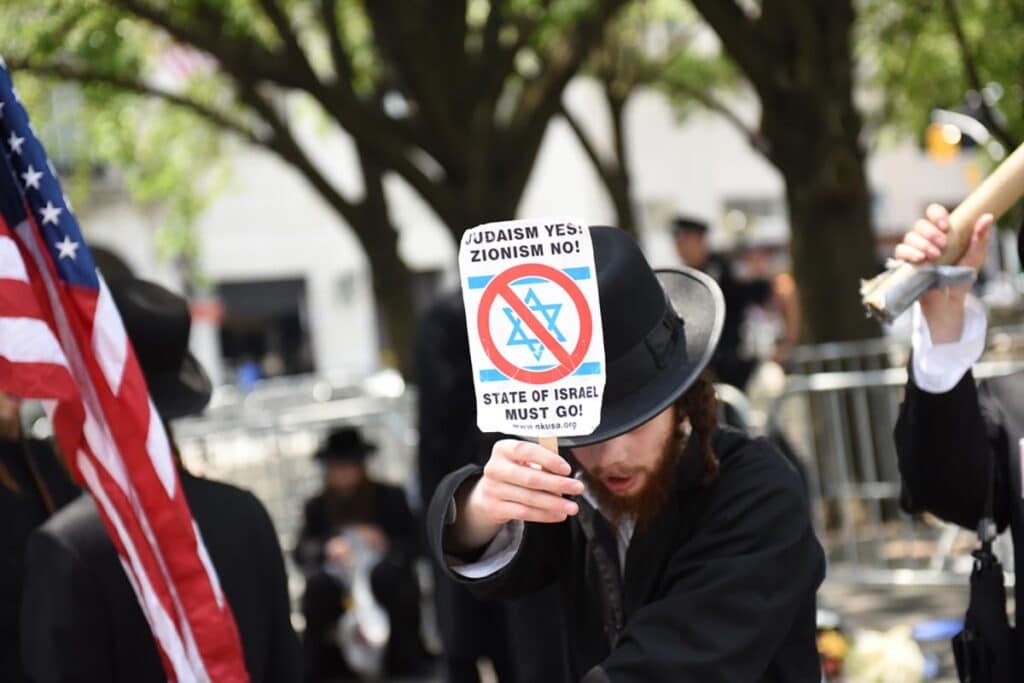
The longing for Zion is embedded in our cultural and spiritual DNA. But for some Jews, there’s a distinct difference between the Zion of our liturgy and the Zionism of Israel’s founding fathers. It’s precisely that gap between our prayers and our political reality that powers the Neturei Karta’s activism.
Early Zionist leaders were mostly secular and largely concerned with the practical realities of building a state, a home for global Jewry. For them, spiritual liberation depended on the Jewish people’s physical liberation.
Devout Jews, on the other hand, wrestled with the theological issues of building a Jewish state. While many religious Jews saw a deep spiritual value in the establishment of a modern Jewish state, others disagreed.
Religious Zionists believe that the creation of the State of Israel represents the first, miraculous step in the coming of the Messianic era. But religious anti-Zionists, like the Neturei Karta, think they’ve got it all wrong.
They believe only the Messiah can rebuild the Jewish homeland. In their words, “We are in exile by Divine Decree and may emerge from exile solely via Divine Redemption.”
From the Neturei Karta’s perspective, the Zionists who built the modern state of Israel more or less took God’s job and made a mockery of it, building a secular state instead of a theocracy governed by Jewish law.
They believe the modern state of Israel represents a “pseudo-Judaism” that has “replaced a Divine and Torah-centered understanding of our peoplehood.”
The disagreement between Zionist and anti-Zionist Jews isn’t just political — it’s fundamentally religious. While Zionist Jews believe that the modern, man-made Jewish state is overall a net positive for the Jewish people, anti-Zionist Jews believe the exact opposite.
The Three Oaths
This ideological difference stems in part from an obscure discussion in the Talmud about the three oaths that govern the Jewish people’s relationship with God.
While many Jews consider these oaths to be symbolic, anti-Zionist Jews see them as a religiously binding contract. Violate the first two oaths, and you’ve violated your contract with God.
- Oath #1: Once in exile, Jews are forbidden to return to their homeland en masse.
- Oath #2: Jews are forbidden to rebel against the governments of the countries where they live.
- Oath #3: The world’s nations are forbidden to persecute Jews too harshly.
As political Zionism gained traction in the early 20th century, some religious leaders, motivated by the first two oaths, formed anti-Zionist groups in response.
By 1921, Jerusalem was home to two distinct Haredi groups who worked closely to counter the Zionist influence.
For a while, these anti-Zionist groups were a major thorn in the Zionist leadership’s side. They asked the British to rescind their support for the Zionist cause.
They pledged their loyalty to the Jordanian king, should he succeed in taking over the Promised Land — and they had some particularly fiery words for their Zionist counterparts.
The impact of the Arab Revolt and World War II
But everything changed in 1936 when an Arab revolt ripped through Palestine. Zionist paramilitaries, like the Haganah, did their best to defend the Jewish communities spread throughout the land.
Still, hundreds of Jews were murdered, sparking a fierce debate among the anti-Zionist groups. Without the Zionist paramilitaries, the Jewish death toll would have been incalculable. They began to wonder whether the anti-Zionist groups should start cooperating with the Zionists.
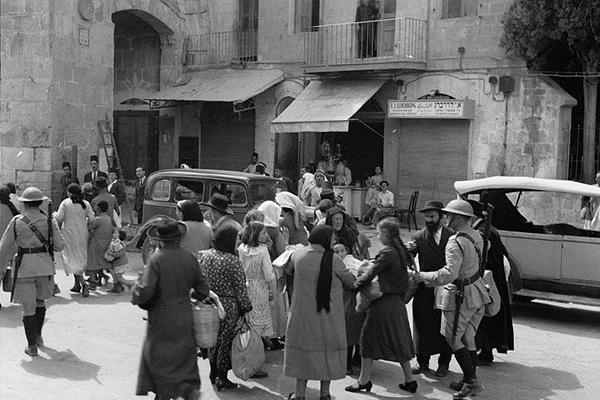
For one small band of hardliners, the answer was a clear, resounding no. These radicals peeled off from the larger anti-Zionist community in 1938 to form their own splinter group. They called themselves the Neturei Karta, Aramaic for the Guardians of the City.
They held fast to their anti-Zionism throughout the entire Arab revolt, which ended in 1939. They held fast through all of World War II, as the Nazi war machine consumed one-third of the world’s Jews.
The extremism of the Neturei Karta
For some anti-Zionists, the Holocaust was a turning point — a reason to believe in a national homeland. But for the Neturei Karta, the Holocaust was a divine punishment for Zionism.
The Jewish people had violated the first two oaths. They’d emigrated to Israel en masse. They’d rebelled against British rule. So God followed suit, no longer bound by the third oath to protect the Jews from harsh persecution.
This is a rigid and uncompromising view of the world — one that most people would find pretty problematic — but it’s actually not restricted to the Neturei Karta. There’s at least one other anti-Zionist sect that believes the Holocaust was divine punishment for Zionism.
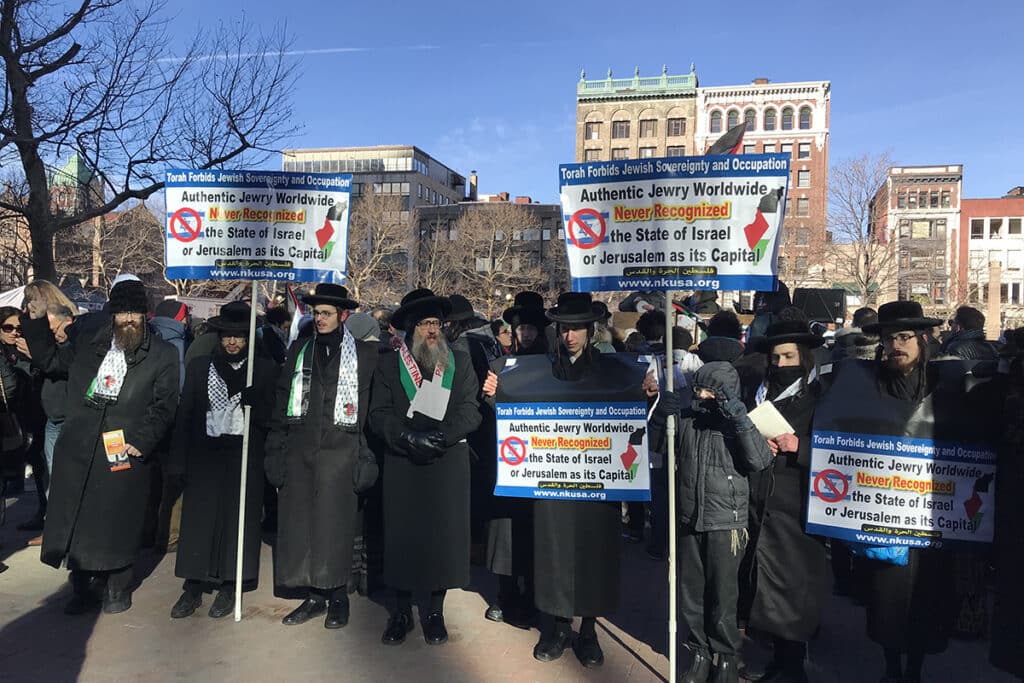
And yet, even that sect rejects the Neturei Karta — though theological disagreement is practically a Jewish tradition, selling out your fellow Jews to the enemy is not.
As the world prepared to vote on the partition of Palestine, the Neturei Karta appealed to the U.N. Secretary-General to “rescue [them] from the Zionist regime.”
How the Neturei Karta reacted to Israel’s establishment
Despite the Neturei Karta’s best efforts, Israel declared independence on May 14, 1948. Six Arab armies, including Egypt’s and Jordan’s, invaded the next day.
Israel won that war. But shortly after the dust cleared, the Neturei Karta’s so-called “foreign minister,” Leib Weisfish, crossed into enemy territory unarmed, hoping to petition the Arab League for weapons to fight against the Zionists.
The Jordanians, to their credit, handed him over to Israel before he reached Arab League headquarters. But Weisfish set a dangerous precedent, and the Neturei Karta have made common cause with Israel’s enemies ever since.
The Neturei Karta’s relationship with Israel’s enemies
Through the 1950s, the Neturei Karta tried repeatedly to make friendly contact with Israel’s Arab neighbors. They finally succeeded in 1980, when Weisfish’s successor Moshe Hirsch befriended PLO Chairman Yasser Arafat.

At the time, Yasser Arafat was Public Enemy #1. Under his leadership, the PLO had orchestrated some of the most devastating attacks in Israel’s history. Massacres of high schoolers and tourists and Olympic athletes. Hijackings of buses and planes and cruise ships. The bombing of civilian targets.
But Hirsch and the Neturei Karta more broadly, saw real value in these repulsive photo-ops with the PLO Chairman. For one, their meetings made headlines, broadcasting the Neturei Karta’s message to the world.
Perhaps more importantly, Hirsch presented his cozy relationship with Arafat as proof that Jews could live and worship safely under Arab rule, negating their need for a sovereign state.
This is the same twisted logic that powers the Neturei Karta’s friendship with former Iranian president Mahmoud Ahmadinejad, Hezbollah, and Hamas.
Why the Neturei Karta’s ideology is so toxic
And it’s exactly why the Neturei Karta’s ideology is so toxic and why even the most radical anti-Zionist groups think they’re extreme.
The Neturei Karta weaponize their Judaism. Their appearance is their currency, and they wield it cleverly to present themselves as the real spokesmen of the Jewish people.
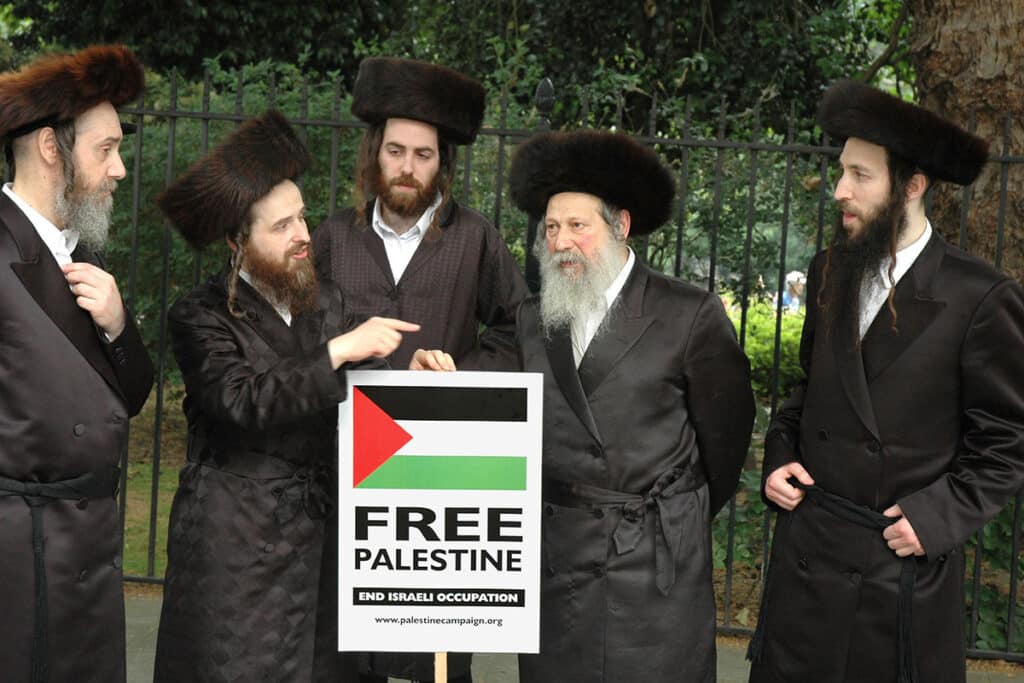
And yet, the wider Jewish community understands that the Neturei Karta are nothing more than tokens, the “pet Jews” of enemy powers.
Make no mistake. The groups that the Neturei Karta cozy up to are explicitly antisemitic. Their bombs, rockets and rhetoric do not differentiate between Zionists and anti-Zionists.
But the Neturei Karta provides them with convenient cover, allowing the avowed enemies of the Jewish people to say “I’m an anti-Zionist, not an anti-Semite!”
It’s a toxic and transparent tactic, but it works. If you didn’t know anything about Judaism — and let’s face it, most of the world doesn’t — the Neturei Karta certainly look the part.
You’d come away thinking that they represented the world’s Jews when, in reality, they’re selling out the Jewish people by lending a Jewish seal of approval to the vilest ideas.
They do this while insisting that they’re not a violent group and that they’re working toward the peaceful dismantling of the Jewish state. It’s a brilliant bit of trickery because the Neturei Karta don’t need to call for violence. Their allies in Iran, Lebanon and Gaza are more than committed to doing their dirty work for them.
